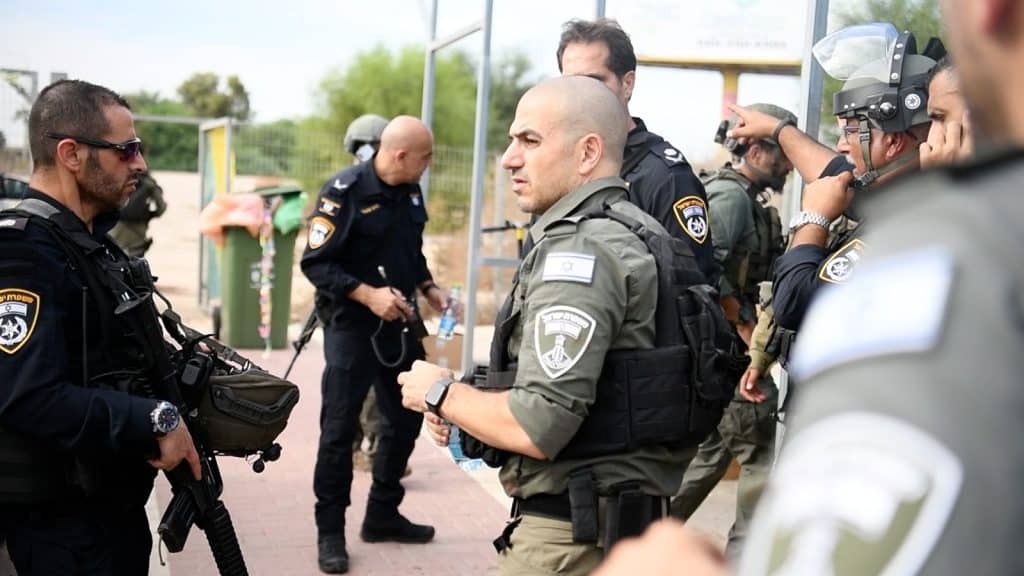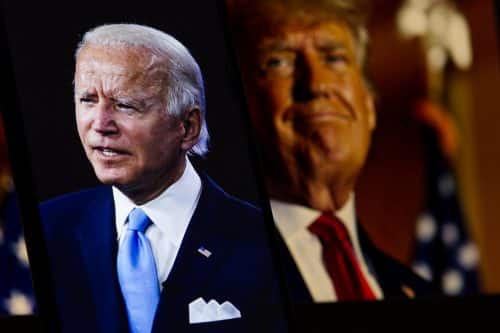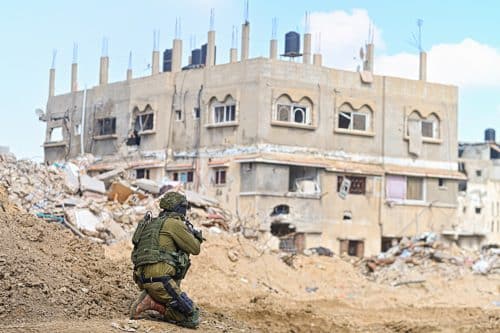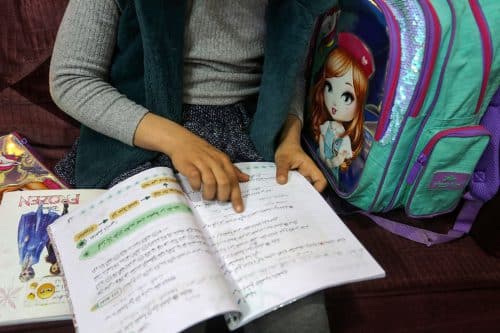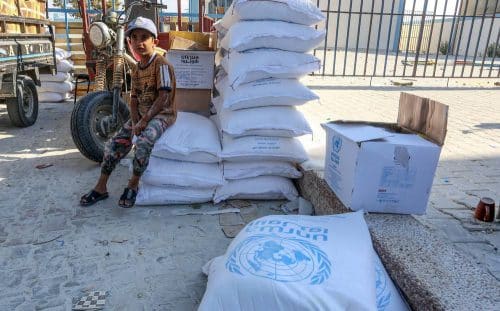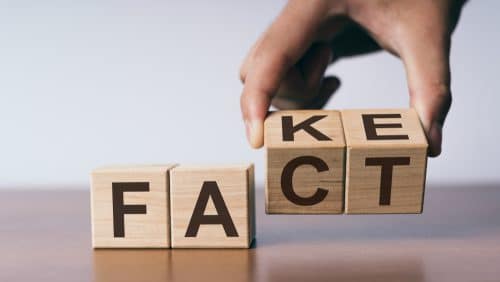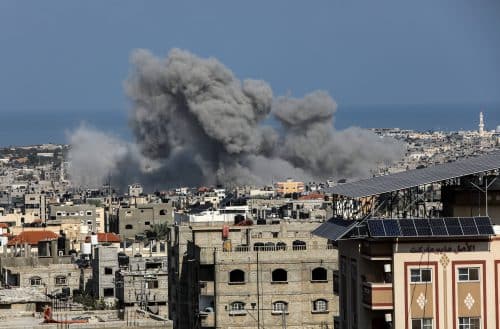Specifically for Commander Tomer Eldar of the Southern Border Police, the heroic story begins in a pastoral background. On the Thursday two days before that Sabbath, he set out with his wife on a brief but long-planned trip in the south. They took along a tent and coffee-boiling kit, and they visited the Zin Ascent and Wadi Zaror. They slept outdoors. As soon as they returned, at 6:30 am on Saturday, he received a report of two motorized gliders at Netiv HaAsara; then immediately another report: “Shooting at Sderot.” On his way to the inferno, he heard the defensive order “Philistine Horseman,” a code mobilizing the entire district.
“An apocalyptic scene confronted me”
On his way to Sderot, he already realized that something unprecedented was happening: “At the entrance to the city, an apocalyptic scene confronted me. Cars were scattered along the roadside. Civilians had been shot in the head. A motorcycle lay upside down on an off-road vehicle. There were corpses. I realized I was entering an event of another kind. At this point I was still saying to the driver, “Turn right, turn left, let’s draw fire.” I wanted the terrorists to reveal their position by shooting at me. Then I heard massive gunfire from the area of the police station. Together with the operations officer who had come with me, I left the car; and we circled around to the side of the police station.”
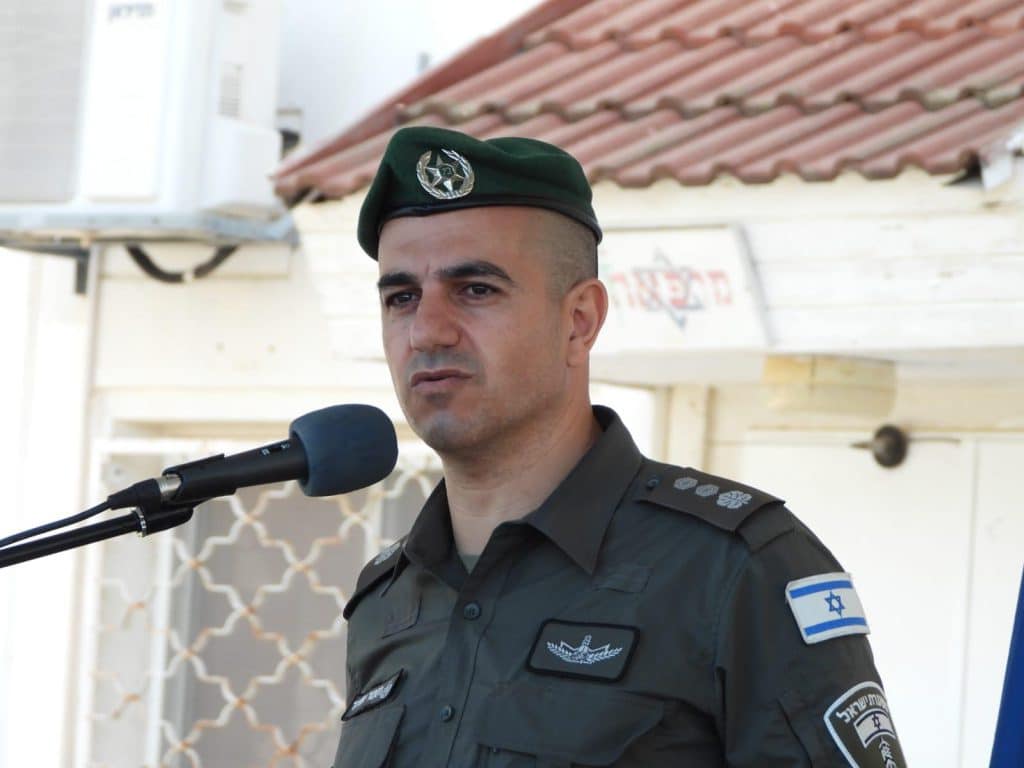
Tomer reconstructed the battle as he’d experienced it: “I approached the Sderot police station from the direction of the firehouse next door. There I ran into the station’s commander. All the time, I was hearing gunfire. He told me, ‘There are two terrorists on the second floor of the station, and I have police on the roof, on the third floor. The terrorists are making their way toward the police officers above them, and they’re also shooting at police officers and passersby outside the station.’ I understood that I’d have to take a force in.”
“I heard the terrorists talking above me.”
Commander Eldar recruited a small squad. “I saw two Israeli soldiers in uniform. I grabbed them by the hand and told them, ‘You’re sticking with me.’ I saw a man in street clothes carrying a Tavor rifle, and he turned out to be an officer from the Duvdevan unit. I mustered him in too. Behind me I saw Segev Cohen from the Negev Special Police Unit. I told him, ‘Brother, you’re with me here.’ And Erez, my operations officer, completed the squad.”
However, even that small force needed to split up. “We came under fire, and we ran toward the police station’s entrance. It was all smashed up from RPG fire. We were being shot at all the time. They threw a grenade, and part of the squad had to fall back. Three of us were left: Segev, the man from Duvdevan, and me. I checked out the whole left side of the station’s entrance to make sure we wouldn’t be shot in the back. When I finished checking, I heard the terrorists talking above me and I gestured to Segev ‘We’re going up.’ ”
The staircase of the Sderot police station consisted of a flight of 12 stairs in
one direction and then another flight of 12 stairs in the opposite direction. Between them was a dividing wall, which is visible in photos taken after the station was blown up. That wall saved the police officers’ lives. “We started up the stairs. I climbed twelve steps with Segev and then suddenly, before we made the turn, the officer from Duvdevan passed me by, a bullet hit him in the shoulder, he fell down, he and rolled to the bottom of the stairs. A brave officer who’d come in after us, a woman named Bar, bandaged him in a room on the right side. A policeman who’d entered together with her was standing on the left side, and he was shot and killed.”
Tomer and Segev remained alone halfway up the stairs. They decided to storm into the gunfire. “I said to Segev, ‘We’re going to charge them. Get ready.’ He nodded to me that he was ready, and we opened fire at the terrorists. Meanwhile we were under insane massive fire from all directions. Everything was being blasted apart all around us, and a second later I saw a grenade on the floor. I shouted ‘Grenade!’ and I grabbed Segev and pulled him toward the wall. The grenade exploded. At the moment of the explosion, another terrorist — one we hadn’t seen before — opened fire at us from down on the right side, so while terrorists were shooting down at us, another one, or maybe more, was shooting up at us.”
At this juncture, Tomer and Segev remained trapped for roughly
two hours, bursting out to attack from time to time and being answered with gunfire and grenades. “We were deafened by all those grenades, and wounded by shrapnel, but we were glad the terrorists were busy with us instead of climbing to the roof where the police were.”
The gunfire from downstairs was still a problem. Tomer made contact with a force from the Special Police Unit and they tried to storm the terrorist, throwing grenades at him, but the gunfire continued. “It was only then that we realized how well barricaded he was. I wouldn’t be surprised if the terrorists knew every inch of the station. Maybe they’d been taken there for residing in Israel illegally. Maybe they’d even been interrogated there in the past.”
Throughout the battle inside the station, Tomer had only a handgun although luckily he was carrying more than a few clips for it. Alongside him, Segev was armed the Tavor rifle, having taken it from the Duvdevan officer. That was their arsenal against a force that had turned out to include many terrorists well ensconced in the building. “During all the fighting, I thought there were two terrorists upstairs and one downstairs, and I didn’t understand how they were producing so much gunfire. In fact, we found the bodies of twenty-five terrorists inside the station.”
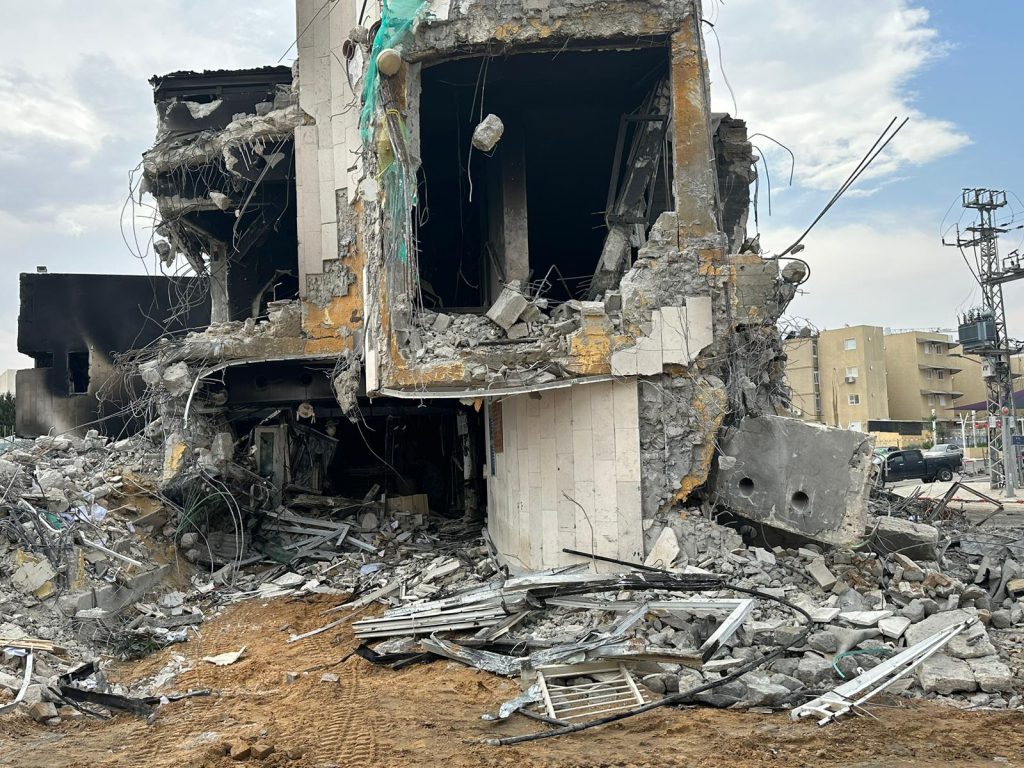
In view of the situation, it was finally decided to evacuate the station and use a crane to rescue the police officers who were on the roof. Tomer and others who had been inside withdrew under cover of grenades that were thrown by the Special Police Unit; four or five at a time were rescued. “I came out last, with the Special Police,” says Commander Eldar. Later, after a number of further attempts to enter the station failed, the Southern District commander decided to demolish the station. Under fire from a battle helicopter and a tank, the terrorists continued shooting and bulldozers began to wreck the building. Because the station was built of reinforced concrete, it was very difficult to bring down.
Despite all the disturbing moments he experienced during the battle, the only aspect that causes Eldar to pause emotionally during his account is what his wife underwent. “In the district, the rumor was that I’d been killed. Even my deputy was sure of it, and my friends from civilian life thought I was dead. So my wife, who knew I was at the Sderot police station, got out of her pajamas and into fresh cloth
es because she believed that the knock on the door would come at any second.”
Out from Sderot to the entire district: 60 seconds that saved central Israel
When Commander Eldar left the station, at 10 am or so, he heard that the same nightmarish battle he’d just endured was being waged throughout his district, and that with the State of Israel having had its line of defense breached, the Israel Police were now the ones on the front line, constructing a barrier zone. “It’s impossible to explain how a district commander feels when he understands that terrorists are all over the district. The Southern Border Police were at twenty-five trouble sites at the same time, where there were something like fifty battles. It’s an episode on an insane scale.”
The Border Police cooperate routinely with the everyday or “blue” police of the Southern District and with the communities’ emergency squads, and they mobilized together. “The ones who actually stopped the attack were mostly the Border
Police, the blue police, and the emergency squads, and it’s important to point out that everywhere the infernal terrorists ran into Border Police or blue police, the terrorists were wiped out. To our sorrow, twelve civilian security coordinators —- commanders of emergency squads — were killed, counting two deputies. Forty-six other members of emergency squads were killed. The Southern Border Police eliminated more than two hundred terrorists. Every policeman I talk with faced terrorists. You can’t imagine the stories of heroic combat, and saving civilians under fire.”
And indeed, when we ask Commander Eldar to tell us some anecdotes of heroism, we hear an overwhelming flood of scenes and stories: At the Black Arrow Memorial, an undercover force from the Special Police Unit waged a battle for an hour and a half, and by the end 25 terrorists were dead. Together with her team, driving private cars, Police Superintendent Shifra Buchris, commander of a reconnaissance unit, saved dozens of civilians at the Re’im festival site, some them shot and otherwise wounded. At Netiv HaAsara, a Border Police fighter joined together with an emergency squad to fight the terrorists, and four terrorists were captured alive. The commander of a Special Police Unit squad led a detachment to Kfar Aza to rescue one of his fighters who was barricaded at home. Despite a bullet wound in his body, the head of a Shahar crime-fighting unit in the Southern Border Police, Chief Superintendent Eran Kalimi, together with Border Police fighter Mai Gershoni, eliminated three terrorists and rescued two hostages whom
the terrorists were trying to abduct. An undercover team that had been sleeping at Nahal Oz eliminated a total of roughly 100 terrorists. Sergeant Major Yehuda Kader and Chief Inspector Amit Gur clashed with terrorists four times in a drive along Route 232. Chief Inspector M. of the undercover unit set out to rescue his wife, also a police officer, at the Re’im festival site and was wounded himself after eliminating several terrorists. And there are many more stories of heroism. They didn’t stop coming.
However, what occurred at the Yad Mordechai junction was the most dramatic and consequential event of all. As soon as the District Commander issued the “Philistine Horseman” order, mobilizing the entire police force, a squad set out to block the junction and succeeded in stopping the terrorists at the last moment. “Within sixty seconds after they arrived at the junction, eight motorcycles came in their direction. Each motorcycle carried two terrorists, and they were followed by two pickup trucks with terrorists who were already shooting at the police. The squad returned fire, and a Special Police Unit squad that was passing by not far off joined them. Together they eliminated the terrorists and prevented a serious incursion into central Israel.
“Almost every commander in my district was wounded”
Those stories are only a small selection from a long array of unbelievably heroic deeds, but Commander Eldar sees them as representing the crux of the matter. “These are stories of values, not just action. Commanders charged ahead of their troops. They showed courage and an eagerness to engage the enemy, along with a sense of comradeship and mutual responsibility. There were many, many heroes here. These are the values on which the Border Police fighters were raised.” And this is an opportunity to honor the Border Police commander who accompanied the forces throughout the fighting. Commander Eldar, who himself was wounded at Sderot, recounts: “Almost all my commanders in the district were wounded
. The commander of my Special Police Unit caught two bullets and a grenade blast, the commander of the Shahar unit caught three bullets, the commander of the Rural Attack Unit was shot in the leg, and the honor roll goes on and on. My entire deployment of commanders — every one of them — rushed forward to attack, and I’m proud of them. Twenty-six were wounded and three died: Staff Sergeant Yaakov Krasninski; Sergeant Major Yehuda Kader, an NCO at Eshkol / Ein HeBesor; and Superintendent Nisim Lugasi, who was Deputy Commander of the Rural Assault Unit in the Southern Border Police. He was killed at Ofakim, and his promotion to Superintendent was posthumous.
“The Israel Police,” Commander Eldar adds, “are responsible for the internal battlefront in the State of Israel. Since 1948, the State of Israel hasn’t changed its approach to security, and it’s up to the Israel Police to function as a significant factor in that approach.”
What about the future of the fighting? “My fighters are determined to continue, with eyes front and with chest swelling. We’ll have time later for mourning and sadness. We have only one country and one army. The events of October 7 will yet be investigated, but we’re looking to the future and we’re proud of the security services and of the people of Israel who have been embracing us from the moment the fighting started. The issue shouldn’t be all about facing Gaza. It’s about embracing Israel. There should be one policy for Be’eri and Jerusalem.”
Photo credits:
Israel Border Police spokedmanship and Tomer Eldar’s private album
